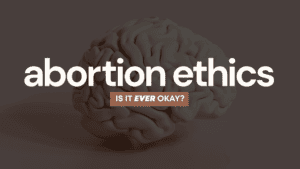You can teach your children how to resolve conflicts among themselves or with their friends and other people they know. Imagine how much better life could be for you and them.
Here are 12 key principles that young peacemakers need to learn:
1. Conflict is a slippery slope. Some children try to escape from a conflict, while others try to solve it by going on the attack. Few naturally try to work it out.
Escape Responses: These responses are used to get away from a conflict instead of trying to resolve it. They delay healing.
- Denial — Pretending that a conflict does not exist or refusing to do what we can to work it out
- Blame Game — Blaming others for the problem, pretending we did nothing wrong, covering up what we did, lying
- Run Away — Prolonging the problem by running away from the other person
Attack Responses: These are wrong attempts to win a fight rather than resolve it. They damage a relationship further rather than repairing it.
- Put Downs — Attacking others with harsh and cruel words, stirring up anger in others
- Gossip — Talking about others behind their backs
- Fight — Using physical force to get our way
Work-It-Out Responses: These are the only good ways to respond to a conflict.
- Overlook an Offense — Dealing with an offense yourself by simply deciding to forgive a wrong
- Talk-It-Out — Going directly to the other person to talk out your disagreements
- Get Help — Asking a parent or teacher to help you decide how to handle the conflict you are involved in
2. Conflict starts in the heart. The choices we make to get our own way are deliberate. We decide whether to be obedient or disobedient, wise or foolish, caring or unloving.
3. Choices have consequences. For good or bad, the choices we make will affect us and others. Conflict is often the consequence of a choice we have made.
4. Wise-way choices are better than my-way choices. Selfishness is not smart and will not lead to happiness. The wise way is to obey authority, make right choices, seek godly advice and respect others.
5. The blame game makes conflict worse. It doesn’t work to point the finger at someone else, cover up one’s own bad choices or make excuses.
6. Conflict is an opportunity. By handling it right we get a chance to glorify God, serve others and become better people.
Conflict is not necessarily bad or destructive. Even when conflict is caused by wrong-doing and causes a great deal of stress, it can lead to good. You can use conflict to:
- Glorify God (by trusting, obeying, and imitating him)
- Serve other people (by helping to bear their burdens or by confronting them in love)
- Grow to be like Christ (by confessing wrong and turning from attitudes that promote conflict)
These concepts are totally overlooked in most conflicts because people naturally focus on escaping from the situation or overcoming their opponent
Therefore, it is wise to step back from a conflict and ask yourself whether you are doing all you can to take advantage of these special opportunities.
7. The “Five A’s” can resolve conflict. These simple steps will almost always lead to peace.
Children, like adults, can learn to confess their wrongs in a way that demonstrates they are taking full responsibility for their part in a conflict.
- Admit what you did wrong. Include both wrong desires and bad choices.
- Apologize for how your choice affected the other person. Express the sorrow you feel.
- Accept the consequences for your wrongdoing without argument or excuses.
- Ask for forgiveness.
- Alter your choice in the future. Think over and plan how you are going to act differently next time.
8. Forgiveness is a choice, not a feeling. By forgiving someone, we are making four promises.
False Ideas about Forgiveness
- You need to feel like forgiving before you can really forgive. (Wrong. It’s a choice you make, not a feeling.)
- Forgiveness means forgetting about what someone did to hurt you.
- Forgiveness excuses the other person’s sin.
- Forgiveness depends on getting a guarantee that someone won’t do the same wrong thing again.
Four Promises of Forgiveness
- I promise I will not dwell on what you did wrong. I will think good thoughts about you and do good for you.
- I promise I will not bring up this situation and use it against you.
- I promise I will not talk to others about what you did.
- I promise I will be friends with you again.
9. It is never too late to start doing what’s right. You can always stop doing wrong, then think about a better way and plan how to pursue it.
10. Think before you speak. Or before you act. Or before you confront someone.
11. Respectful communication is more likely to be heard. This includes the words we speak, our tone of voice and our body language (making eye contact and avoiding bad gestures, facial expressions or posture).
12. A respectful appeal can prevent conflict. Learn how to make one.
- Stop yourself from choosing to say or do something that will cause conflict.
- Think about why you want to appeal and about what words to use.
- Appeal (Ask): Using “I” messages and questions, communicate your appeal in a respectful way.
- Respond respectfully whether the other person answers yes or no.


















